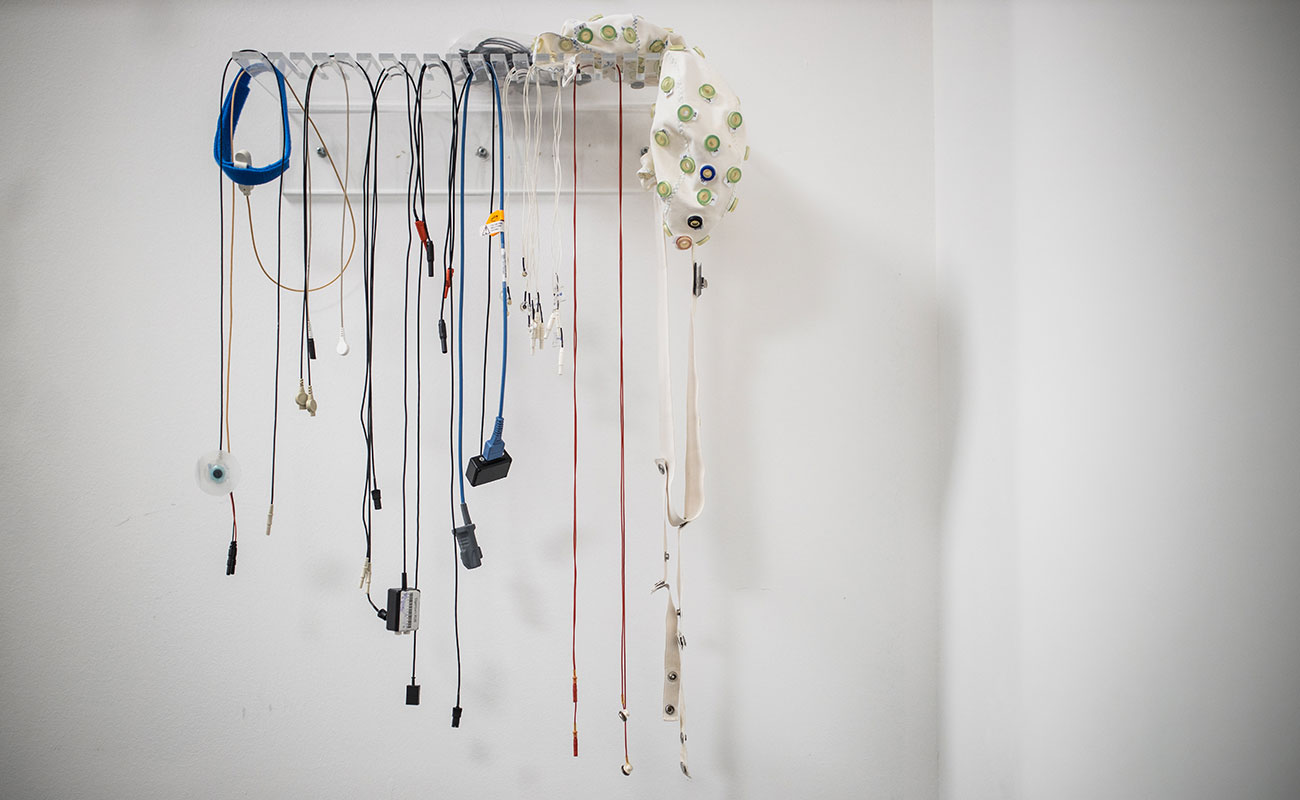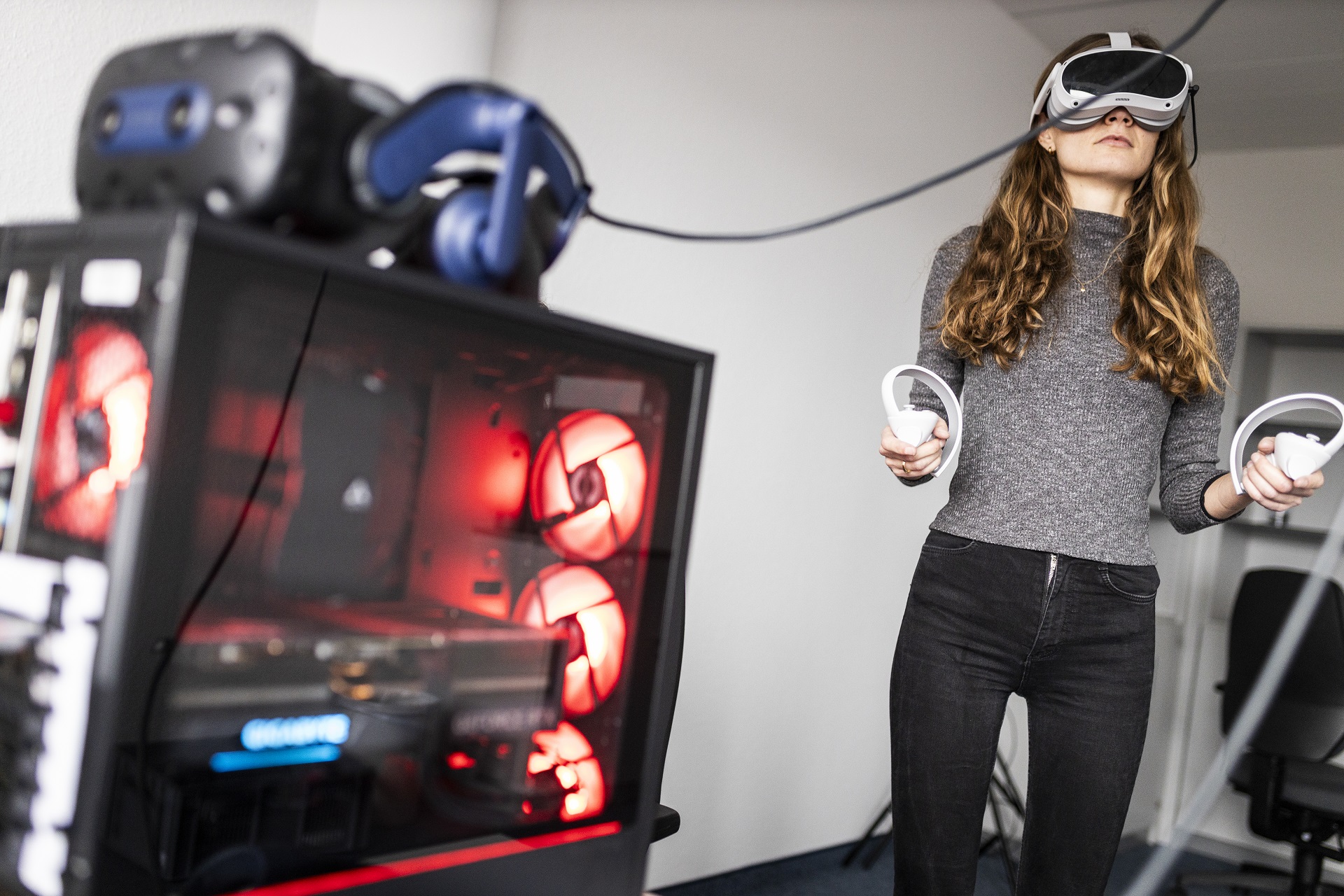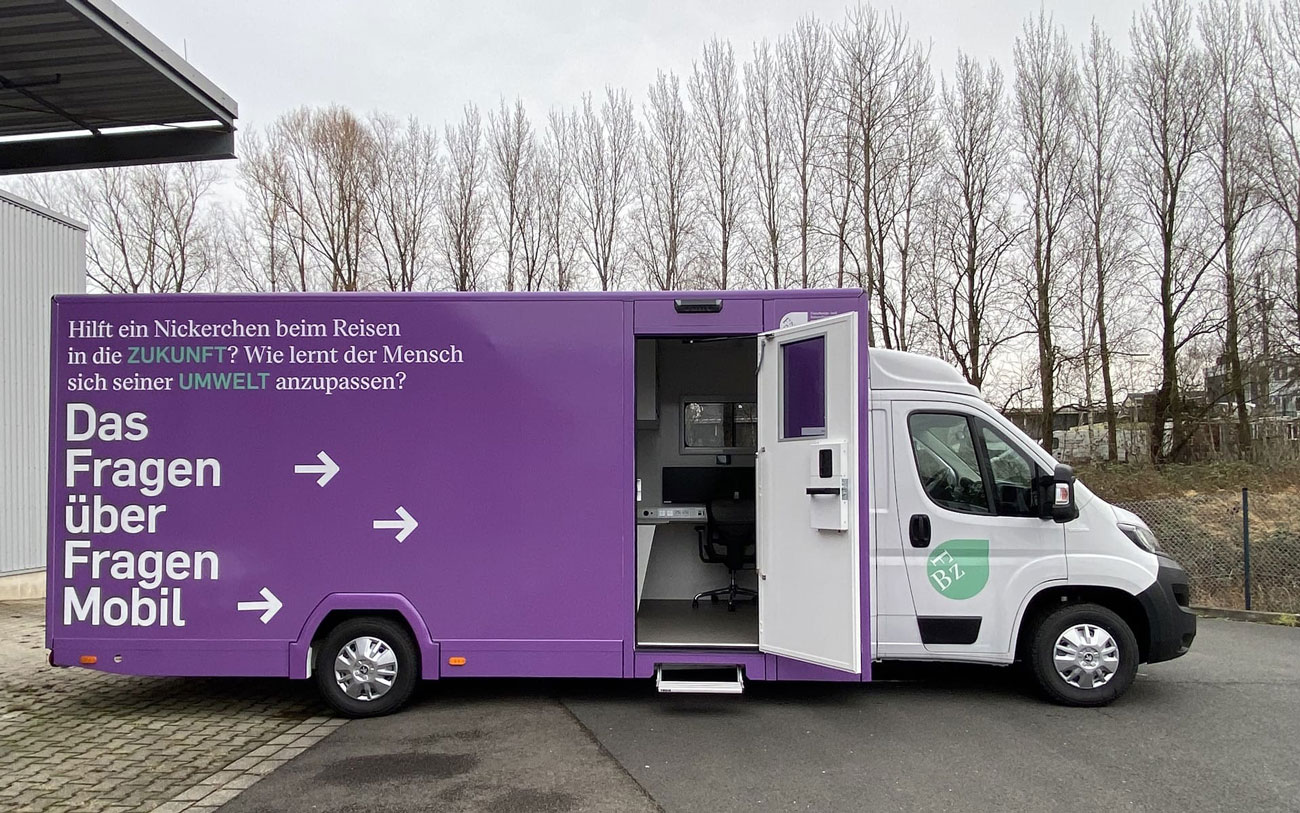
Labore und Infrastruktur
FBZ integrates laboratory, intervention and field research in all relevant living environments. The vision is to create an efficient, dynamic interface between basic research and clinical practice based on innovative methodology and state-of-the-art information technology.
To study the fundamental processes related to mental disorders and the accompanying psychotherapeutic process, our Clinical Psychophysiological Lab offers state-of-the-art infrastructure for conducting assessments and experiments within clinical studies including both patient populations and control samples. Our focus is to examine emotional and attentional processes over the entire life span.
Both experimental labs are equipped with a peripheral physiological acquisition system (Brain Amp ExG, Brain Products, Gilching) and a 32-channel EEG system (Brain Amp DC, Brain Products, Gilching). All peripheral physiological parameters of the sympathetic (e.g., skin conductivity, T-wave amplitude) and parasympathetic branch of the autonomous nervous system (e.g., heart rate variability), as well as central nervous activity (e.g., event related potentials, frontal asymmetry) can so be accurately recorded.
Synchronized multi-camera video-audio-recording allows us to monitor a wide range of behaviors, from simple actions of infants, for example in studies on imitation, to more complex problem-solving behaviors and verbal responses of children and adults.
Our labs are equipped with four high-speed, high-resolution cameras (full HD, frame rates up to 100Hz). The remotely controlled camera enables wide-angle recording, providing a comprehensive overview of the entire experimental chamber. The three freely movable cameras allow highly flexible monitoring of dyadic interactions. Synchronized recording of all camera perspectives using specialized software enables fine-grained behavioral coding with a high time resolution. A ceiling-mounted boundary microphone covers the lab as a whole. In addition, three wide range unidirectional microphones enable audio recordings of each interaction partner. Depending on the respective study, mobile devices for motion capturing, peripheral psychophysiological assessments, as well as with tailor-made apparatuses manufactured in the Faculty workshop can be added to the lab setting.

With its infrastructure of fixed VR stations and portable VR headsets, physiological testing (including wearables) and programming expertise, the multidisciplinary team at the VR Research Lab explores the mechanisms underlying the onset and maintenance of mental health disorders. Using digital technologies, we aim to contribute to the development of new therapies and diagnostics.
We work to develop portable and user-friendly digital devices and design virtual environments and on-line psychological interventions adapted to specific target populations (e.g., young people, carers, patients with specific mental health disorders). The interventions are carefully tested; trainings for mental health professionals guarantee best possible transfer from scientific research to clinical practice

After being granted major instrumental funding from the German Research Foundation (DFG), the FBZ psychophysiological, behavioral observation and eye-tracking/VR lab technology and infrastructure has been implemented into an equivalent state-of-the-art mobile solution, housed in a large custom equipped transporter. Our scientists are now able to cover the entire spectrum of experimental research at any location - for example at schools, hospitals or day care. The project also includes driving safety training for our researchers.
The spatial flexibility improves the representativeness of our studies: we aim to reach people who have rarely participated in previous studies, in particular children and people with a low level of education. Therefore, we expect to investigate even more precisely how, for example, mental illness and socioeconomic status are linked.
Further information can be found in our flyer (in German).
Modern information technology plays a central role in psychological, physio- and neuropsychological experiments. Computer technology in our labs is connected to the internet via the local network which is secured by a range of protective techniques. Experimental data is stored on Network Attached Storage-devices (NAS) with individual access rights for each research group in order to guarantee data integrity and data protection. The same applies to the recording of audio and video signals for scientific evaluation of experimental results.
We protect the collected data on various levels: guarantee confidentiality, integrity and availability of data and protect personal data according to the EU General Data Protection Regulations (EU GDPR). These aspects are vital from the start of a planned study, from the application of scientific funding and design of psychological experiments. Each funding proposal has to be approved by the local Ethics Committee of the Faculty of Psychology of the RUB. A local TÜV-certified data protection officer supports the research teams in the implementation of the requirements.
